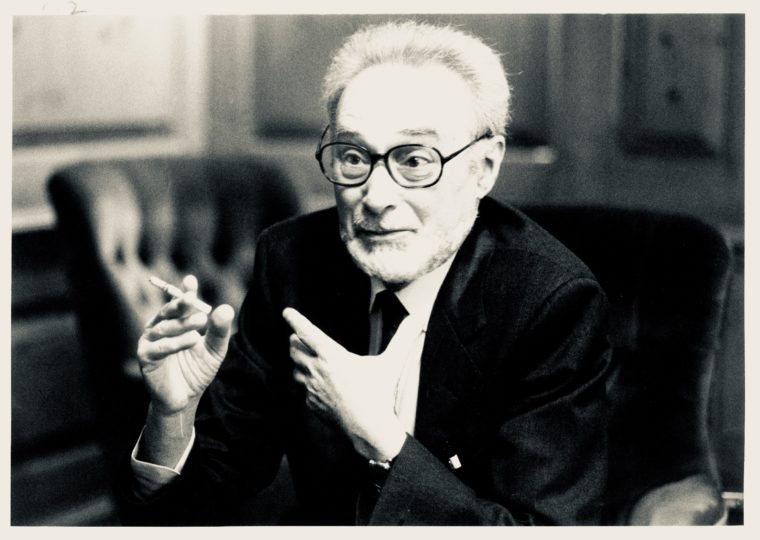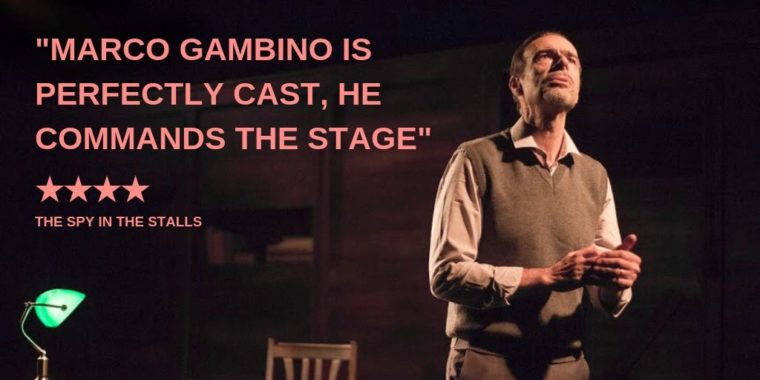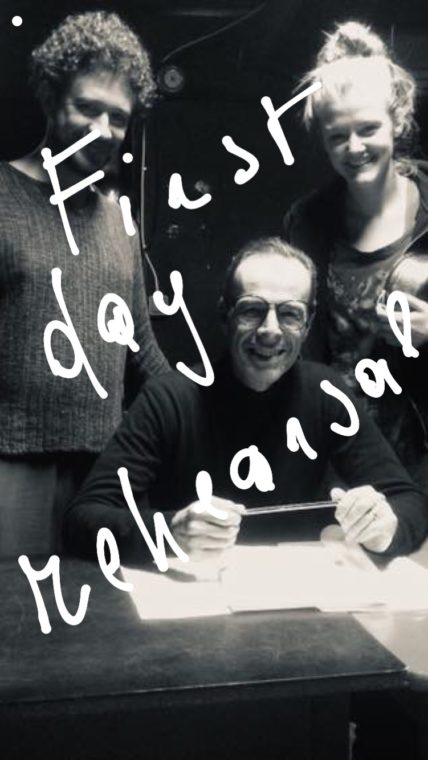
Italian chemist and writer Primo Levi (1919-1987).

The weight of a life spent bearing witness.
“Tomorrow? Tomorrow meant never… I think the last time I thought of tomorrow with any hope was on the train to Auschwitz.”
Decades after surviving Auschwitz, chemist and writer Primo Levi is restless as he struggles to complete a story about a character he simply cannot understand. In search of guidance, he pulls from the memories which haunt him and inadvertently brings the characters from his past to life – though their input proves to be far more penetrating than expected.
In this poignant, potent play peppered with cheeky Yiddish humour, Geoffrey Williams invites you to embark on Primo’s cross-world journey which explores the ambiguity of human nature as defined by one of the twentieth century’s greatest thinkers
CAST
Marco Gambino Primo Levi
Alex Marchi Elijah; Rabbi; Paweł; Höess; Alex; man on train
Paula Cassina Lucia; Mrs Giordanino; Vanda
Eve Niker Null Achtzehn
CREATIVE
Director Geoffrey Williams
Designer Baśka Wesołowska
Lighting Designer Matt Leventhall
Sound Designer Rachael Murray
Associate Lighting Designer Euan Davies
Drowned Or Saved – Marco Gambino & Paula Cassina – Photo by Ewa Ferdynus
Drowned or Saved?, Tristan Bates Theatre – Review
Author: Marianna Meloni in Reviews 13 November 2018 0 Comments
Pros: The poignant portrayal of Primo Levi is brought to life by an excellent cast.
Cons: Condensed into just over one hour, the events described might feel fragmentary.
Summary
Excellent
Jewish playwright and director Geoffrey Williams contributes to the memory of the Holocaust through the experience of Auschwitz survivor Primo Levi.
User Rating: Be the first one !
Primo Levi’s contributions play a pivotal role in our understanding of the Holocaust. Born and bred in the Italian city of Turin, he was deported to Auschwitz in 1944 and owes his survival to the Nazis’ decision to employ him as a chemist in a rubber factory – which kept him away from the heavy labour in the camp and Poland’s bitter winters.
When Levi returned home after the liberation, he resumed his work as a chemist and wrote a number of memoirs about his years as a prisoner. His books contain insightful accounts of his experience, narrated with dignity and a startling attempt to make sense of it, which his detractors interpreted as forgiveness.
Suffering from depression and burdened by survivor guilt, he published his last collection of essays, The Drowned and the Saved, in 1986, a year before falling to his death in an accident that many believed was suicide. Drawing from this final and most introspective work, playwright and director Geoffrey Williams offers a dark portrayal of the man in his final months, committed as he was to leave a written testimony, whilst being haunted by the characters he was writing about. Williams describes his Drowned or Saved? as an attempt to preserve the memory and become ‘a tiny part of the ongoing story of the Jews’.
We are admitted into Levi’s studio, where a slender and white-haired writer (the poignant Marco Gambino) is deep at work amongst his papers. The atmosphere is dim and we can hear in the distance a choir of voices, which sound like a lament.
In turns, phantasms from his past pay him a visit, as well as the people with whom he’s sharing his house. His wife Lucia (Paula Cassina) interrupts an imaginary conversation with the prophet Elijah (Alex Marchi), who is supposed to help him make sense of his ordeal. His governess Mrs Giordanino (also played by the empathic Cassina) knocks on the door of his studio to halt a painstaking scene of violence. Repeatedly, the unnamed prisoner Null Achtzehn (Eve Niker) – emptied of any human features – crawls around the room, as described in a passage of Levi’s If This Is A Man.
This is a weighty play, which pays tribute to a man and the unbearable sufferance he endured. Those unfamiliar with Primo Levi might find it fragmentary and struggle to identify a storyline. Whereas, those who are acquainted with his accounts ought to appreciate Williams’s sobering achievement in bringing them to life, with the support of a solid cast. In both cases, Drowned or Saved? fulfils the playwright-cum-director’s resolution to preserve the memory of a dire part of history that is still worryingly actual.


